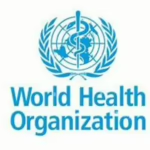A recent report from the Nursing and Midwifery Council (NMC) in the United Kingdom has revealed that a total of 15,421 nurses and midwives trained in Nigeria have been added to the UK’s professional register between 2017 and March 31, 2025.
The NMC, which regulates nursing and midwifery practice in the UK, confirmed that as of September 2024, 14,815 Nigerian professionals were on its register. That figure rose to 15,421 by the end of March 2025, indicating a 4.1 percent increase within six months.
Nigeria ranks third among countries supplying foreign-trained nurses to the UK, behind only the Philippines and India.
In the last year alone, 20,671 professionals educated outside the UK joined the NMC register for the first time. This number, however, represents a notable drop of 8,957—or 30.2 percent—compared to the previous year’s total of 29,628 international entrants.
According to the NMC, there has been a noticeable reduction in international recruitment from major source countries. In the past year, new joiners from India fell by 36.7 percent, from the Philippines by 47.6 percent, and from Nigeria by 25.5 percent.
In addition to the slowdown in new entrants, the NMC reported that 5,276 international professionals exited the register over the same period—an increase of 33.3 percent from the 3,959 who left the previous year. While this marks a rise in departures, the percentage of leavers from the international cohort remains relatively low at 2.7 percent—up slightly from 2.4 percent.
The council linked these changes to evolving immigration policies, particularly the Health and Care Worker visa, and a renewed focus on domestic recruitment under the NHS Long Term Workforce Plan. It also noted a growing trend among international professionals already in the UK who are considering relocating to other countries for improved pay and working conditions.
Despite an increase in locally trained entrants, the NMC observed that domestic recruitment is not expanding quickly enough to make up for the decrease in overseas professionals. Consequently, the overall growth of the UK’s nursing and midwifery workforce has slowed.
The report also noted a shift in the age of new joiners. For the first time, individuals aged 31 and above made up more than half of new entries to the register. Among those trained abroad, 58.3 percent fell within the 31–50 age range. Similarly, the proportion of UK-trained professionals aged 31 or older has risen—reaching 46.5 percent in the past six months, compared to 37 percent five years ago.
In terms of diversity, the number of professionals from Black, Asian, and other ethnic minority backgrounds has continued to rise. As of March 31, 2025, they account for 32.5 percent of the NMC register, up from 30.6 percent the previous year.
The NMC emphasised the need for inclusive and equitable work environments as the register becomes increasingly diverse. The council reaffirmed its commitment to ensuring that all professionals, regardless of background, experience fair treatment and support throughout their careers.











Leave a Reply